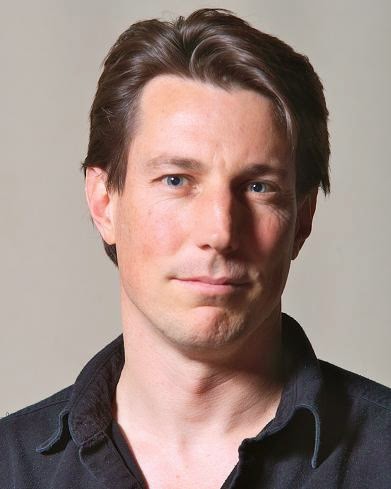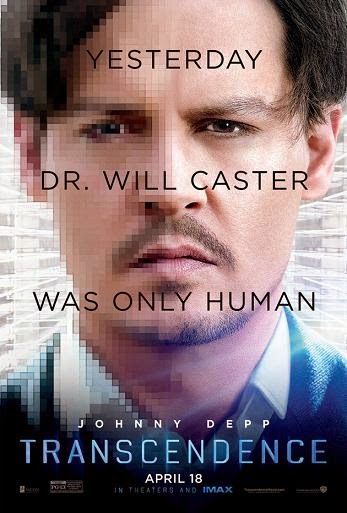Please help me welcome Benjamin Dancer as today’s Wednesday’s guest. I forgot to ask what his beverage of choice might be, but he doesn’t seem like a latte or cup of tea kind of guy. Maybe it isn’t too early for just a little nip of scotch. He, and the central character in his book, just seem like they would enjoy a glass of the Glenlivet 21 Year Old Archive. I can afford a virtual bottle to share with anyone who is interested.
While Benjamin is taking over the spot here, I am at The Blood Red Pencil today giving tips on how to approach reviewers.
The
technological singularity is an event after which, theory says, everything will change. Everything. It is theorized that the singularity will happen once computers can think for themselves. A concept that is beginning to find it’s place, not only in technological circles, but in the cultural mainstream.
Transcendence, a film starring Johnny Depp, takes on this theme.
In a technological singularity the potential for good is unlimited. So is the potential for evil. According to the dark narrative, the rush toward the development of artificial intelligence (AI) will be humanity’s undoing.
That humans are about to destroy themselves has been in the
Zeitgeist for some time. It is the premise behind the rise in popularity of post-apocalyptic stories. When I think back to my adolescence, I remember The Terminator. A generation later came The Matrix. Now we have The Hunger Games and Divergent. All of these stories are relating an anxiety most of us share, that humankind is really messing things up.The technological singularity borrows it’s name from astrophysics. A singularity is another name for a black hole. We know that once you cross the event horizon of a black hole, there is no coming back.
What happens once computers start thinking for themselves? It’s a theme I explore in my literary thriller Patriarch Run:
“There are some hair-raising potentialities. First of all, we’re talking about a software that evolves at an exponential rate. So whatever it can do now, it can do exponentially better tomorrow and better the day after that and so on. A software that will eventually design its own hardware, design the machines to build that hardware.”
“You’re talking about a factory.”
“Eventually, yes. But we are not concerned about a factory in the conventional sense.”
Jack stopped at the gate, waiting for the explanation.
“With access to nanotech manufacturing, a computer like Yan Shi could build anything, do anything. Evolve at a pace never seen before on this planet. In the intelligence community, we call this the Technological Singularity.”
“As in a black hole?”
“Precisely. We are living at the event horizon. They call it the Singularity because, just like with a black hole, nobody knows what happens once you cross this line. Only that everything changes.” The Colonel led him through the gate and across the tarmac to the Cessna’s gangway. “It’s all theory. Theory that is taken very seriously by a heretofore neglected niche of the intelligence community.”
“To be clear,” Jack offered, “we’re talking about Terminator, The Matrix.”
The Colonel stopped at the top of the gangway. “As cautionary tales, yes, we are. But there’s also a best case scenario.”
“Which is?”
“In the right hands, this might be the technology we need to solve the great problems of our age. Unlimited, clean energy. Hunger and disease would be topics of history. We might be talking about the next stage in human evolution.”
They sat facing each other in the cabin.
“You’re saying this computer could usher in a new age?”
“Perhaps. But only the dreamers are looking that far ahead. You and I have a more immediate concern.”
“Which is?”
“How long do you think it would take for a computer brain evolving at an exponential rate to become intelligent enough to make the entire digital security apparatus of the United States obsolete?”
“I don’t know.”
“Neither does anybody else.”
Jack opened the window shade.
“We’ve known that the country has been vulnerable to a cyber attack on its power grid for years. A blackout which would effect everything from tap water to food production. Such an attack wouldn’t require a super-intelligent computer. It could be done from a college dorm.
“Now imagine what a cyber attack planned by Yan Shi might look like. It is the consensus of the heretofore neglected niche of the intelligence community that if an attack with a high enough level of sophistication were executed against the power grid and other critical infrastructure simultaneously, the nation would be unable to recover.”
The Cessna Citation accelerated down the runway, lifted its nose and was airborne.
“That’s a grim prediction.”
“Yes, it is.”
~~~~~~~~~~~~~~
Benjamin is an Advisor at Jefferson County Open School where he has made a career out of mentoring young people as they come of age. He wrote the novels PATRIARCH RUN, IN SIGHT OF THE SUN and FIDELITY. He also writes about parenting and education.
PATRIARCH RUN is a thoughtful and character-driven, coming-of-age story. Think of it as Jason Bourne meets Good Will Hunting. Against a backdrop of suspense, the novel explores the archetypal themes of fatherhood, rites of passage and self-acceptance through a set of characters that feel alive on the page.




